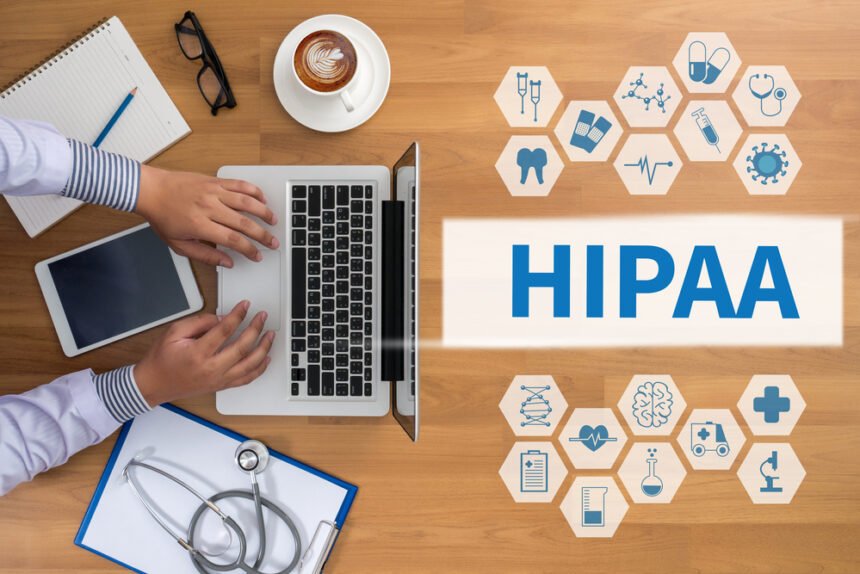Acronyms exist in the healthcare industry. Although it is tough to keep track of every letter, we must understand them in detail. Whether it’s regulatory processes or the medical terminology, everything has a vital cause.
- Defining HIPAA
- 1. Security Rule
- 2. Privacy Rule
- 3. Identifiers Rule
- 4. Transaction Rule
- 5. Enforcement Rule
- Who Should Follow HIPAA Rules?
- Who Should Not Follow The HIPAA Rules?
- Why is HIPAA Important To a Healthcare Provider?
- 1. HIPAA compliance urges on patient transparency
- 2. Non-compliance is expensive
- 3. Your reputation depends on it
- What Types of Rights Do You Have About Your Medical Record Kept With A Healthcare Provider?
- When Can Your Medical Records Be Shared?
- Winding Up
All they want is to keep patients – and the providers from whom they get treatment – safe and secure. And HIPAA is one such instance.
Defining HIPAA
HIPAA (Health Insurance Portability and Accountability Act) was passed in 1996 to protect the patients’ interests. This act makes sure the protected health information of patients stays confidential.
In terms of defining HIPAA, there are 5 primary rules. So, before discussing the importance of HIPAA to the healthcare industry, let’s discuss them:
1. Security Rule
This rule safeguards the privacy of the personal medical records of a patient. Moreover, it decides upon the strategies, standards, and procedures that the health industry should follow for safeguarding the data on accessibility, storage, and during transference.
It consists of 3 different levels of protections to offer complete security for the patient information.
Physical protection to handle and safeguard data storage units within the company facility.
Technical protection that associates with authentication and encryption for safe data access. Administrative protection that handles the HIPAA security compliance team.
2. Privacy Rule
This standard handles the protection of the PHI and medical records of the patients. It has some restrictions and terms on the uses and the revelation of the sensitive data in certain circumstances.
This rule permits a person for asking for a copy of his/her medical track so that he/she can check it and correct it in case he/she finds any error. To check the copy, the patient needs to fill particular forms that are consistent with the Privacy Rule.
- Privacy Complaint Form
- Request for Restriction of Patient Healthcare Information
- Authorization for Use or Disclosure Form
- Request for Access to Protected Health Information
- Notice of Privacy Practices Form
- Request for Accounting Disclosures Form
3. Identifiers Rule
This rule associates with 3 exclusive identifiers that utilize HIPAA rules for both financial and administrative purposes.
- Standard Unique Employer Identifier
- National Health Plan Identifier
- National Provider Identifier
4. Transaction Rule
This rule is associated with the transaction codes used in the HIPAA transaction. These codes are important because they make sure the precision, security, and safety of a patient’s medical record.
5. Enforcement Rule
As the name says, this rule is all about fines and penalties charged on any violation of data by the organizations that are supervising the patients’ medical reports.
The aforementioned information should have provided you an idea as to the basic rules of HIPAA. But the question may arise if some organizational bodies don’t need to follow the rules laid down in the HIPAA?
Yes, there are some entities are not mandated to follow such rules as it was found that in some cases, medical history can be shared because of the public’s betterment and the fact that some businesses need to operate successfully.
Who Should Follow HIPAA Rules?
The HIPAA rules should be followed by:
- Health maintenance organizations (HMOs)
- Health insurance organizations
- Some government programs
- Company health plan
- Clinics, hospitals, pharmacies, and nursing homes
- Dentists, doctors, chiropractors, and psychologists
- Every organization that handles legal business and has custody of the patients’ medical histories.
Who Should Not Follow The HIPAA Rules?
The HIPAA rules don’t have to be followed by:
- Employers
- Life insurers
- Workers compensation carriers
- Maximum schools and school districts
- Many municipal offices
- Law enforcement organizations
- State organizations
Why is HIPAA Important To a Healthcare Provider?
Now the question comes why is HIPAA important to the healthcare industry? This can be answered from a person and an organization’s point of view as well.
Let’s take here the case of the healthcare organization!
1. HIPAA compliance urges on patient transparency
In case a patient knows that his data is safe and secure, he is more likely to reveal relevant medical details. However, there are plenty of topics that can evoke shyness or sensitivity in patients. These could incorporate substance abuse, mental health problems, reproductive concerns, and more.
As such, these issues could lead a patient to conceal data that could make all the differences in a perfect diagnosis.
According to the study of the healthcare industry, if patients rely on a healthcare organization, they are looking for more care from it. Moreover, they are expecting more to comply with return and suggestions for follow-up assistance.
On all accounts, a healthcare organization that is clear and transparent regarding its HIPAA compliance will strengthen that similar transparency level in its patients.
2. Non-compliance is expensive
A HIPAA breach could happen unknowingly or intentionally. Either way, in case a healthcare provider fails to fulfill HIPAA standards, it could be looking at a penalty or fine. The steps to take to make sure compliance are comparatively much simpler and less costly.
Arranging secure and safe procedures, training staff and maintaining and updating systems can help you abstain from a security violation. Moreover, you can avoid the huge charges that go alongside it.
In case you don’t know where your company stands in terms of compliance, start with the security risk assessment tool offered by the US Department of Health and Human Services. This can help you decide whether or not you are covered when it comes to following HIPAA rules.
3. Your reputation depends on it
Aside from the cost, it is also crucial to ponder the non-monetary approaches failure of which can cost you.
From lots of hours invested in contacting patients in case of a security violation, to a patient’s trust loss and a disgrace on your brand recognition, there are several ways you could have to pay forcefully.
In a nutshell, it is vital to set rules of HIPAA compliance. Then, you need to make sure that every Healthcare IT Solutions Provider, and the patients they are providing services, are familiar with them.
This conveys the message that you respect and value people’s dignity, privacy and of course individual decision-making. Also, it shows that you will try your best to safeguard these characteristics.
What Types of Rights Do You Have About Your Medical Record Kept With A Healthcare Provider?
- The patient can correct any error that he finds not fit in his records.
- The patient can inspect his medical history on demand.
- The patient must have the ultimate authority to approve of sharing his medical data for any cause of advertisement.
- The patient should be informed by the respective authority if they share his data with a third-party.
- In case a patient thinks that his medical record is shared with somebody unauthorized without informing him or without giving him access to his medical history, he can simply complain against that unauthorized entity that has violated the law.
When Can Your Medical Records Be Shared?
The HIPAA rule was legislated for safeguarding a patient’s privacy, but this law still has some limitations.
These restrictions are put in the authorization so that it enables a seamless functioning of the healthcare industry and there is an approximate enhancement in the health centers’ service quality.
Let’s check out the limitations placed in the authorization when your medical data can be shared:
- For paying the doctors and hospitals for the services they have offered for your treatment for running their business successfully.
For your care, treatment, and organization with other health services. - To make sure that the doctor provides exceptional quality care and the nursing homes are well-maintained and clean.
- With your immediate relatives who are engaged in offering healthcare services or will pay your medical bills if you don’t object to sharing of your medical data.
- To make police reports ready in case there is a case of stabbing, gunshot wounds, and others.
- To safeguard public health if there is an epidemic.
What Are The Penalties Charged For HIPAA Breach?
If there is any HIPAA breach, the authorities can charge penalties that vary based on the violation. The penalty relies on the intentional or unintentional leaks.
Apart from this, the court also checks how many times the leak had happened from the same organization before charging the sum of penalties.
Winding Up
So, this is everything you should know about the importance of HIPAA regulations for the healthcare industry. Now you should assess all types of data that you will collect to analyze whether you should be HIPAA compliant or not.
HIPAA authorization is continuously changing. Albeit it appears a little complex, it’s important to make sure that everybody is in compliance.
Since you should know all HIPAA regulations, you should be ready for the changes also. With constant healthcare improvements and other out-of-line movements, this
industry requires flexibility.








